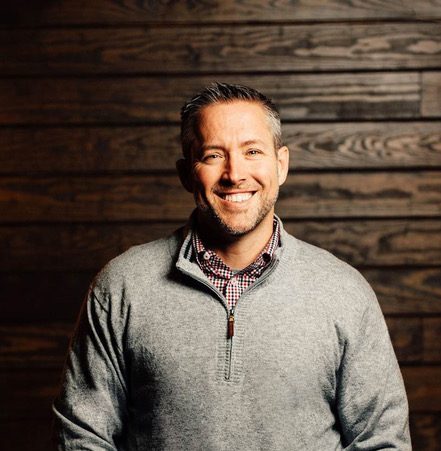FIRST-PERSON: Prayer moves the arm that moves the world
EDITOR’S NOTE: March 3-10 is the Southern Baptist Convention’s Week of Prayer and Mission Study for North American Missions and the Annie Armstrong Easter Offering. J.D. Greear is the president of the SBC and pastor of The Summit Church in the Raleigh-Durham, N.C., area
DURHAM, N.C. (BP) — The books of Luke and Acts, which were originally one volume, are like a hand and a glove. In Luke, we see the shape of the divine hand in the person of Jesus. Then in Acts, we see the invisible hand, the Holy Spirit, filling the church.
Seeing the church pray is a perfect example. What Jesus teaches about persistent prayer in Luke is seen in action when Peter gets imprisoned in Acts.
In our upcoming Week of Prayer for North American Missions for the 5,000 missionaries serving in cities, small towns and college campuses across North America, here are three aspects of the early church’s prayer that will embolden our own:
- WHATEVER THEY WERE AFRAID OF, THEY TALKED ABOUT TO GOD.
Eugene Peterson, in his book “Answering God: The Psalms as Tools for Prayer,” notes two types of prayer in the psalms: evening prayer and morning prayer. Evening prayer is marked by praying your worries to God. Psalm 4 is a good example: David commits to God what he is worrying about, the people who are bothering him, the things that make him angry or sad. Then he reminds himself of the promises of God. Morning prayer, as in Psalm 5 meanwhile, is active, petitionary prayer, boldly praying against things in the world that aren’t right.
What the church does in Acts 12 when Peter is imprisoned is, in a sense, evening prayer. Herod had just beheaded James, the leader of the early church, and it looks like Peter is next up for execution. Peter’s friends are understandably worried for his future and their future. So they fervently talked to God about it.
Our missionaries laboring in North America face daily challenges and even opposition as they seek to share the Gospel. They may know better than any of us the necessity of evening prayer, committing to God their worries for sustaining their ministries and families. We can talk to God for them, too.
What do we do when we are afraid, worried or upset? Look at what David says: “In peace I will both lie down and sleep; for you alone, O LORD, make me dwell in safety” (Psalm 4:8 ESV). If we would develop the practice of evening prayer, it would give us such an incredible sense of peace. It would give us the capacity to rest, knowing that our prayers are heard by the One whose arm controls the universe.
- THEY USED PRAYER LIKE A ‘WARTIME WALKIE-TALKIE’
The early church prayer isn’t just an evening prayer asking for peace. It is also a morning prayer — an active, bold, petitionary prayer throughout Acts as the church prays about the mission.
As John Piper says, “Prayer is primarily a wartime walkie-talkie for the mission of the church as it advances against the powers of darkness and unbelief. It is not surprising that prayer malfunctions when we try to make it a domestic intercom to call upstairs for more comforts in the den…. Until you know that life is war, you cannot know what prayer is for: Prayer is for the accomplishment of a wartime mission.”
This kind of prayer is bold and audacious because they knew it is God’s will for the church to get the Gospel to the ends of the earth, regardless of Herod’s plans for Peter. So they got on their knees and prayed, knowing that prayer actually changes situations, that it moves the arm that moves the world.
We often think of praying to God when we should be praying with God. He’s already shown us His will and His promises in Scripture. We know it isn’t God’s will for the Gospel to wither and die. We know it isn’t God’s will for our neighborhood, our city, our world to perish. So let’s rebel against the status quo and pray with God for the advance of His Kingdom.
- THEY WERE PERSISTENT, LIKE THE WIDOW IN LUKE 18.
Remember the parable of the persistent widow in Luke 18? A widow bothers and nags a judge so incessantly that he decides to hear her out — even though he doesn’t care about her, about justice or about God. And Jesus says (incredibly) to pray to God like that.
Look at Acts 12, and you’ll see that the early church got the message. With Peter in prison, they prayed and prayed and prayed. Verse 12 says that when God answered their prayer and broke Peter out of prison, Peter showed up that night and found them in prayer, beating down God’s door!
I know there are times when God directs us away from specific requests, even godly ones. The apostle Paul asked for God to remove his “thorn in the flesh,” and God gave him a firm “no” three times (2 Corinthians 12:9). But in general, I think we give up way too early in our prayers. We ask once, maybe twice, and then simply stop asking. But Jesus told us to keep asking, even to harass God as if He’s asleep (Luke 11)!
Acts shows us that when the church prays like that for a united purpose — to see churches planted and the Gospel preached in every corner of North America — prison doors come off their hinges. Thousands of people come to faith. Cities are turned upside-down.
Not from technique, from skill or from planning. From prayer.
By J.D. Greear, Southern Baptist Convention, posted March 6, 2019

